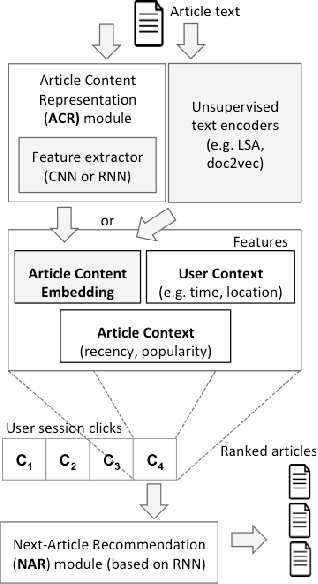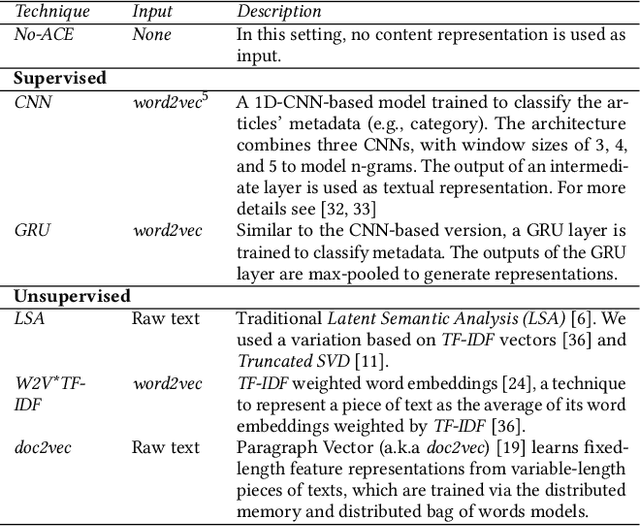On the Importance of News Content Representation in Hybrid Neural Session-based Recommender Systems
Paper and Code
Aug 19, 2019



News recommender systems are designed to surface relevant information for online readers by personalizing their user experiences. A particular problem in that context is that online readers are often anonymous, which means that this personalization can only be based on the last few recorded interactions with the user, a setting named session-based recommendation. Another particularity of the news domain is that constantly fresh articles are published, which should be immediately considered for recommendation. To deal with this item cold-start problem, it is important to consider the actual content of items when recommending. Hybrid approaches are therefore often considered as the method of choice in such settings. In this work, we analyze the importance of considering content information in a hybrid neural news recommender system. We contrast content-aware and content-agnostic techniques and also explore the effects of using different content encodings. Experiments on two public datasets confirm the importance of adopting a hybrid approach. Furthermore, we show that the choice of the content encoding can have an impact on the resulting performance.
 Add to Chrome
Add to Chrome Add to Firefox
Add to Firefox Add to Edge
Add to Edge